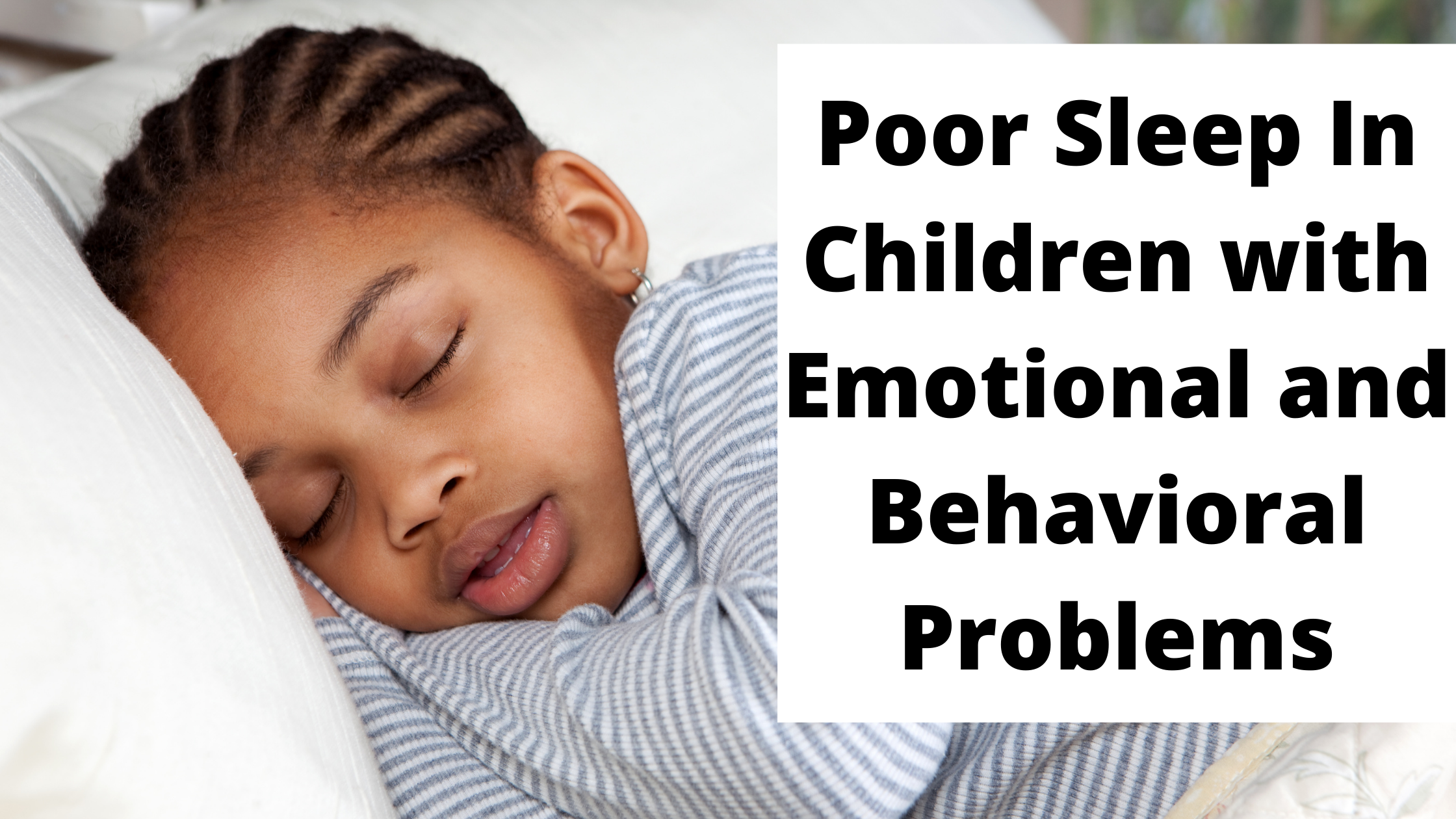
Sleep is very important for children. Sleep helps them grow, prevents illness, and provides them with energy for another day of learning. Adequate sleep also helps children with emotional and behavioral regulation. For children, poor sleep can lead to emotional and behavioral problems (EBPs). Continue reading to find out what these problems are and how sleep influences their development.
Recommended sleep for children
Well-rested children are more likely to be healthy and energetic. They are also more likely to get better grades in school and have a more positive attitude towards life. It is recommended by the American Academy of Sleep Medicine that preschool children get 11-13 hours of sleep and school children should get 10-11 hours of sleep.
Poor sleep can increase the risk of physical health problems, including heart disease, diabetes, and emotional and behavioral problems.
Emotional and behavioral problems in children
Emotional and behavioral problems in children are behaviors that are abnormal or excessive for children's well-being. These behaviors can include behavioral disorders like obsessive-compulsive disorder, disruptive, attention-deficit, or developmental disorders, as well as emotional disorders like depression and anxiety.
It is normal for children to be mischievous or have moments where they are not well-behaved. However, when the duration, frequency, and severity of outbursts and behavioral disruptions cause issues in the child's everyday life or impact their safety or those around them, then they may be more towards the abnormal end of the spectrum.
It's important if your child is exhibiting high levels of aggression, inattention, and/or sadness or anxiety that you address it and get them help immediately. Children whose issues go unaddressed can have short- and long-term complications, including issues with interpersonal relationships, the social justice system, and trouble finishing school, as well as professional and employment issues as adults.
Management of these disorders is multi-level and multidisciplinary, with several professionals involved in the management of your child. Treatment will include a combination of pharmacological, therapeutic, and behavioral management techniques.
Sleep and EBPs
There is a bidirectional relationship between sleep and EBPs. Children who get less sleep than their peers have a higher risk of mental disorders like anxiety, depression, and aggressive behavior as adults. Also, children who get less sleep are more likely to have behavioral problems in the classroom, with more difficulty paying attention to instrutions.
Depression has also been found to be more common in children with depressive symptoms and anxiety disorders. There have been links found between insomnia/sleep disturbances and the development of depression. However, this relationship can exist the other way, as major depression can cause an inability to sleep normally.
Also, this reverse relationship can be found in children with attention-deficit disorders like ADHD, anxiety, or mood disorders. These children report having a hard time falling asleep, and children with more severe mental problems have more severe sleep problems.
Poor sleep can lead to more aggressive behaviors in children. Many symptoms may include fighting with others, destroying property, yelling, making threats, and causing harm to oneself.
It's important to make sure your child sleeps well and for the right amount of time. If your child has ongoing sleep problems, then you should talk to your child's doctor or to a sleep specialist. If you are struggling with getting your child to go to sleep, then you can click the orange button to take a free online sleep test and talk with a sleep specialist!
[Sources]:
https://sleepeducation.org/poor-sleep-children-emotional-behavioral-problems/
https://www.ncbi.nlm.nih.gov/pmc/articles/PMC5803568/

